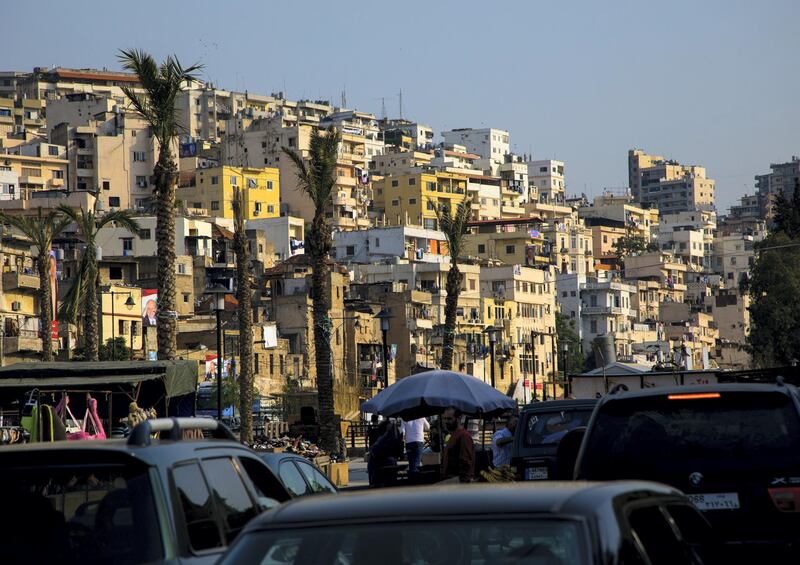Thirteen soldiers were wounded on Tuesday evening while trying to disperse protesters outside a prison in North Lebanon as detainees rioted inside over fears of the spread of the coronavirus, according to the army and media reports.
“Families of detainees and a number of people trying to storm” Qobbeh prison, near the city of Tripoli, threw “stones, pieces of glass and fireworks” at an army patrol, wounding “one officer and 12 soldiers,” said the Lebanese army in a press release on Tuesday.
Families of detainees started protesting outside the 750-inmate prison, Lebanon’s second largest detention facility, after detainees set fire to furniture, reported the state-run National News Agency.
Riot police dispersed protesters with tear gas and the situation was under control by 9pm - the first report of protests was published at 7pm.
Detainees’ relatives demanded the release of inmates as well as a general amnesty, which local politicians have discussed for years and that could cover several charges ranging from terrorism to drug trafficking. But the issue remains politically sensitive and unresolved.
Quoting activists and relatives of detainees in Qobbeh prison, Al Jazeera reported that at least four inmates were wounded by rubber bullets fired by security forces and that the riot was caused by fear of the spread of the coronavirus to detention centres. The army, police and justice ministry did not respond to a request for comment.
Risk of widespread contamination is high in Lebanese prisons, which hold 220 per cent of their intended capacity. Unrest has increased since the start of the pandemic, though local authorities say that no cases have been detected in detention centres and that they have implemented strict prevention measures such as providing sterilising products for inmates and restricting visits since early March. The virus has infected 548 and killed 19 in the small Mediterranean country.
Read More
[ Coronavirus: Britain's Boris Johnson remains in intensive care as condition 'worsens' ]
[ Abu Dhabi extends temporary closure of certain public venues ]
Justice Minister Marie-Claude Najm previously told The National that the government plans to release around 3000 detainees, roughly one third of Lebanon’s prison population, to reduce the probability of the spread of Covid-19.
On Sunday, Interior Minister Mohamed Fehmi tweeted that 559 detainees had already been freed, but did not share information on the ages of prisoners what prisons they had been in and for what offences.
Local police reported they had foiled a “large prison escape” on Sunday night from the prison of Zahle, in the eastern region of the Bekaa. Detainees had been digging a tunnel that was three metres long and a metre-and-a-half deep from under the prison bathroom.
In parallel, locals in Tripoli and Qobbeh violated a night curfew that was announced on March 26 to curb the spread of Covid-19 to protest bad economic conditions. They chanted “dying of the coronavirus is easier than dying of hunger,” reported the NNA. Last October, Lebanon witnessed its largest protests in history as the country struggles with a severe economic crisis.






